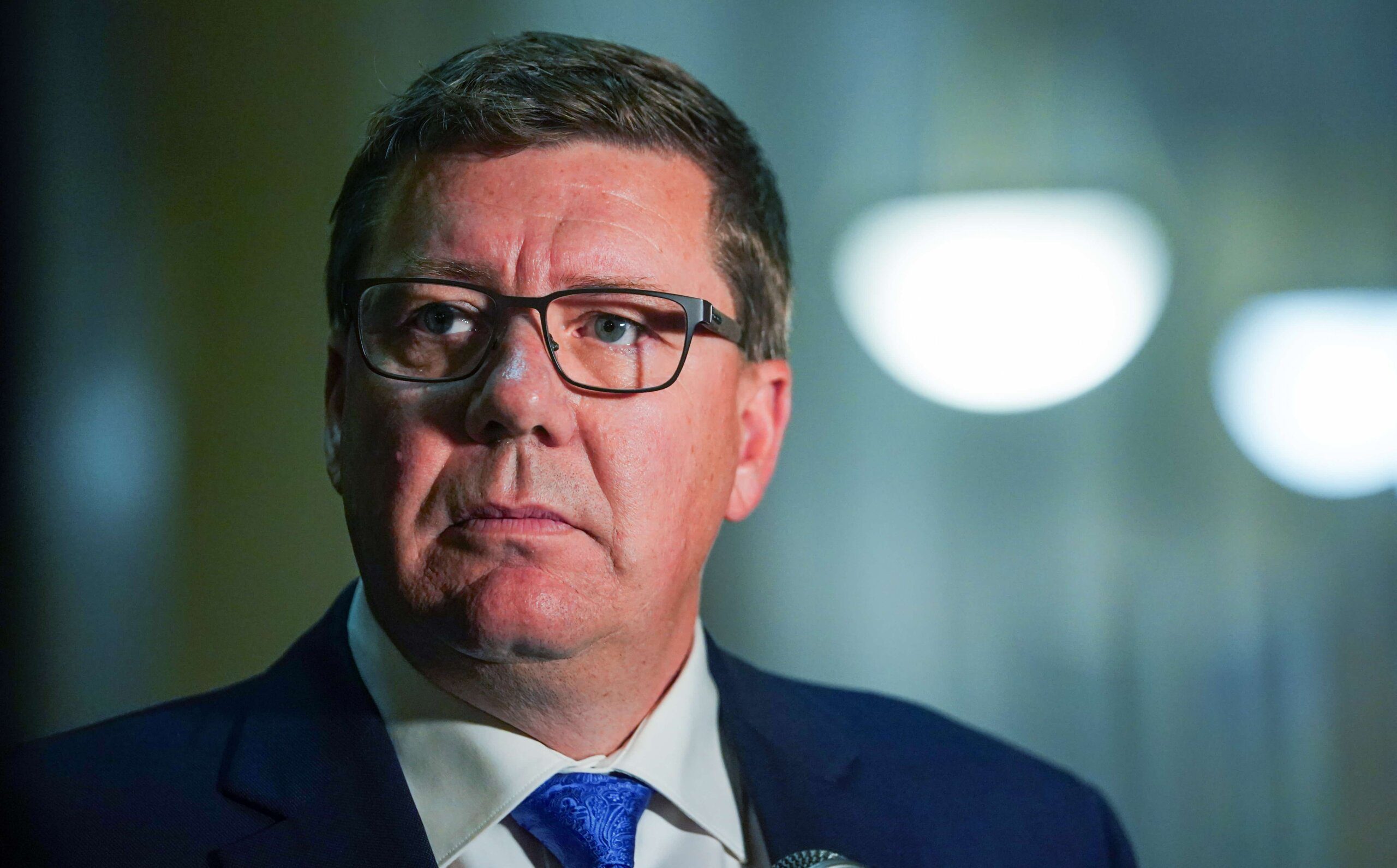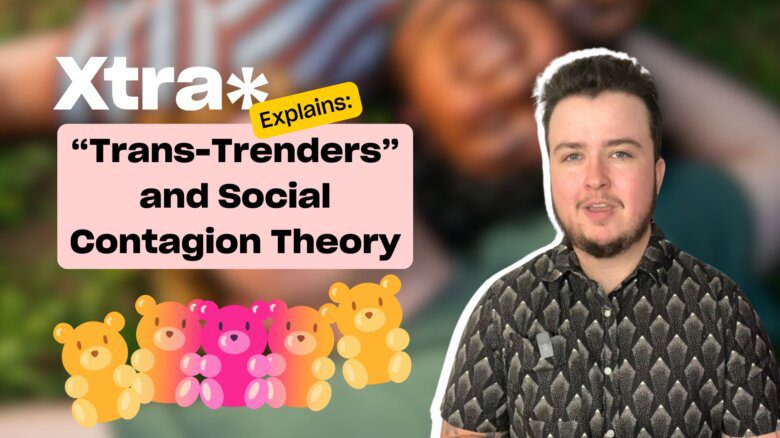The Saskatchewan government has now tabled their bill to invoke the notwithstanding clause in order to enact their policy around students’ use of pronouns in schools and requiring parental consent to do so. It’s unusual for this kind of policy to be legislated at all, but the fact that Premier Scott Moe is moving ahead with it—even recalling the legislature early to get it through as though this were some kind of emergency situation—is extremely concerning. Even more, some of the things in the bill have the effect of Moe telling on himself: that he knows this is dangerous, but he’s going to ram it through anyway for the sake of political points.
There are a lot of things wrong with what got us to this point, starting with the fact that Moe decided to pre-emptively use the notwithstanding clause. If this were the kind of situation that Section 33 of the Charter was envisioned for, invoking the clause would come at the end of an exhaustive court process, going all the way to the Supreme Court of Canada and for that court to have rendered a decision that the province could not accept for whatever the reason. This was not the case here. When the stated policy on pronouns in schools was challenged in superior court, the Saskatchewan Court of King’s Bench decided that a full hearing on the merits of the case was warranted. The court decided to grant an injunction that would prevent the province from implementing the policy in the meantime because the possibility of permanent harm to gender-diverse youth was so great.
“I determine, at this preliminary stage, the public interest in recognizing the importance of the governmental Policy is outweighed by the public interest of not exposing that minority of students to exposure to the potentially irreparable harm and mental health difficulty of being unable to find expression for their gender identity,” Justice Michael Megaw wrote.
Megaw added that the protection of these youth surpasses that interest expressed by the government, and that this was a clear case where an injunction is necessary to attempt to prevent the irreparable harm.
Within hours of the decision, Moe declared this was “judicial overreach” and that he needed to invoke the notwithstanding clause immediately, which would just be laughable and immature if it didn’t also have the effect of trying to undermine the courts. He also fired the government lawyers handling the case and hired a private firm to argue that his policy doesn’t breach the Charter rights of children, which is extremely odd. There is nothing credible to this sense of haste. In the legislature this Tuesday, Moe even said that the policy of informing parents was already status quo in much of the province and that his bill was just creating “uniformity.” But, if that’s the case, he’s undermining his own arguments for why this bill needs to be passed on an expedited basis.
And then there’s the bill itself (caution: this link downloads a PDF, because apparently the Saskatchewan Legislature doesn’t believe in web versions), and all of the problematic things it contains. Some of it is ridiculous, like mandating that all schools have two flag poles, which must display the Canadian flag and the Saskatchewan flag at all times—no third flag pole that might fly a Pride flag allowed! It now requires that any sexual health content be flagged to parents at least two weeks before it is presented so that parents can withdraw their children on those specified days if they so choose. It specifies in law that the only time parents need to be notified of a student using a new name is if it is gender-related—so the parents don’t need to be informed if Anthony goes by “Tony,” if Jean-François wants to be called “J.F.”, or if Shan-Shan prefers to go by the Westernized “Susan.” And if Steven wants to go by “Spike,” that’s not a gender-related change either, so parents wouldn’t need to be notified either, which becomes a blatant issue of discrimination.
The creepiest section of all is the one that prevents the government from being sued for enacting this policy. Not only is the government indemnified from lawsuits, but so are any current or former members of the provincial cabinet, the board of education, employee of the province or board of education, and that “Every claim for loss or damage resulting from the enactment or implementation of this section or of a regulation or policy related to this section is extinguished.” In other words, they are admitting that, yes, their policy could indeed cause the irreparable harm that Justice Megaw warned of, but they’re going to make sure that their asses are covered.
So much of this intentional targeting of queer and trans youth has to do with Moe’s political fortunes—his party’s vote share suffered in a couple of recent by-elections, but not so much at the expense of the provincial NDP, but rather at the expense of a further-right-wing party. So, what does he lean toward? The same tactics of moral panic and ethnic outbidding that seek to put a vulnerable minority in their place for the sake of trying to score some points so that he can win another election, expected in October 2024. And the fact that he is not only bulldozing ahead with taking away the rights of children, but protecting himself and his government in the process is telling about just how morally bankrupt he really is.
As it stands, there is no clarity on what is happening to the Charter challenge around the policy once the bill passes, but I’m told by lawyers knowledgeable about the case that there are options for fighting this abuse of the notwithstanding clause in the courts, though it’s still a hypothetical at this stage. Nevertheless, this assault on trans youth continues, and will be part of policy resolutions at the United Conservative Party’s policy convention in Alberta next month. And while the change in government in Manitoba means a similar policy won’t go ahead, we may yet still see it in Ontario, as Doug Ford will be looking to distract from the Greenbelt corruption scandal he is at the centre of, and his education minister has expressed an interest in such a policy. Ford has demonstrated that he too is absolutely willing to invoke the notwithstanding clause in order to get his own way. This fight is still in the early stages, and I fear that the LGBTQ2S+ community and its allies have a long, tough road ahead.


 Why you can trust Xtra
Why you can trust Xtra


